It’s that time of year again when the trails become swamp-like, the time spent cleaning the bike and kit feels as if it never ends and your riding shoes never seem to quite dry out.
Here at BikeRadar, we’re not shy of getting our tyres wet and will, for the most part, happily just keep riding through the coldest months of the year.
Indeed, while winter mountain biking can be hard work and unpleasant at times, it’s worth remembering how useful it can be in developing your skills and confidence as a rider.
If you can handle a tricky trail with all the elements mother nature can throw at you, you should be in a good place to tackle just about anything on the bike. Don’t they say the best F1 drivers are those that excel in the wet?
To help you get out this winter, we asked our mountain bike test team – Rob Weaver, Luke Marshall, Alex Evans and Tom Marvin – which bits of kit they find essential during these dark, damp days, how they cope with winter riding, and what (if anything) they enjoy about sliding around in the mud.
Rob Weaver | It’s all about the layers
That first ride in the mud is always a wake-up call. As the tyres drift almost uncontrollably while searching for traction and everything feels slower and that bit more sluggish, it genuinely is a shock to the system after the dry dust of summer.
It takes time to re-calibrate your riding and get used to the new sensations occurring beneath your tyres. Patience is key here. That and decent clothing.
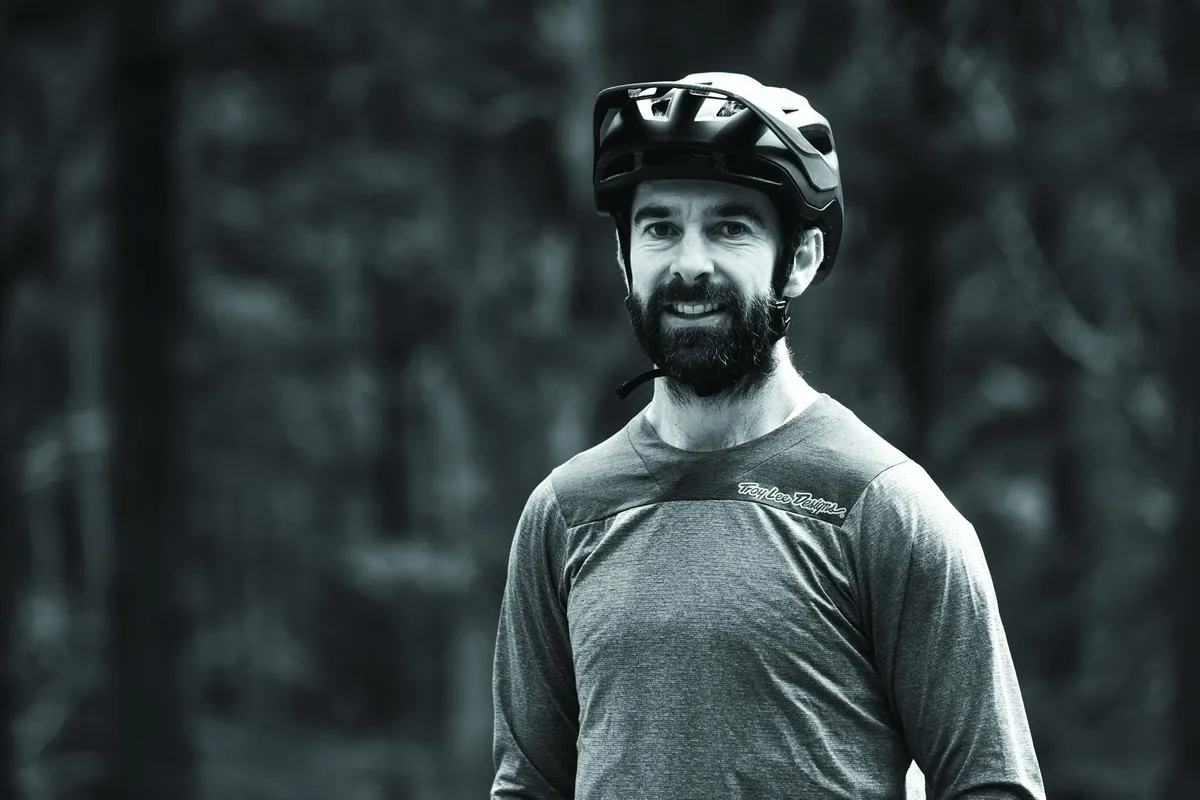
Layering up
When it comes to essentials, I’ve got a few bits of clothing that’ll never leave my kit bag.
I don’t normally go for a full-on waterproof outfit. Instead, I rely on layering the best I can. That means a thin baselayer under my back-protector vest, with something along the lines of the Rapha Trail Windblock jersey over the top.
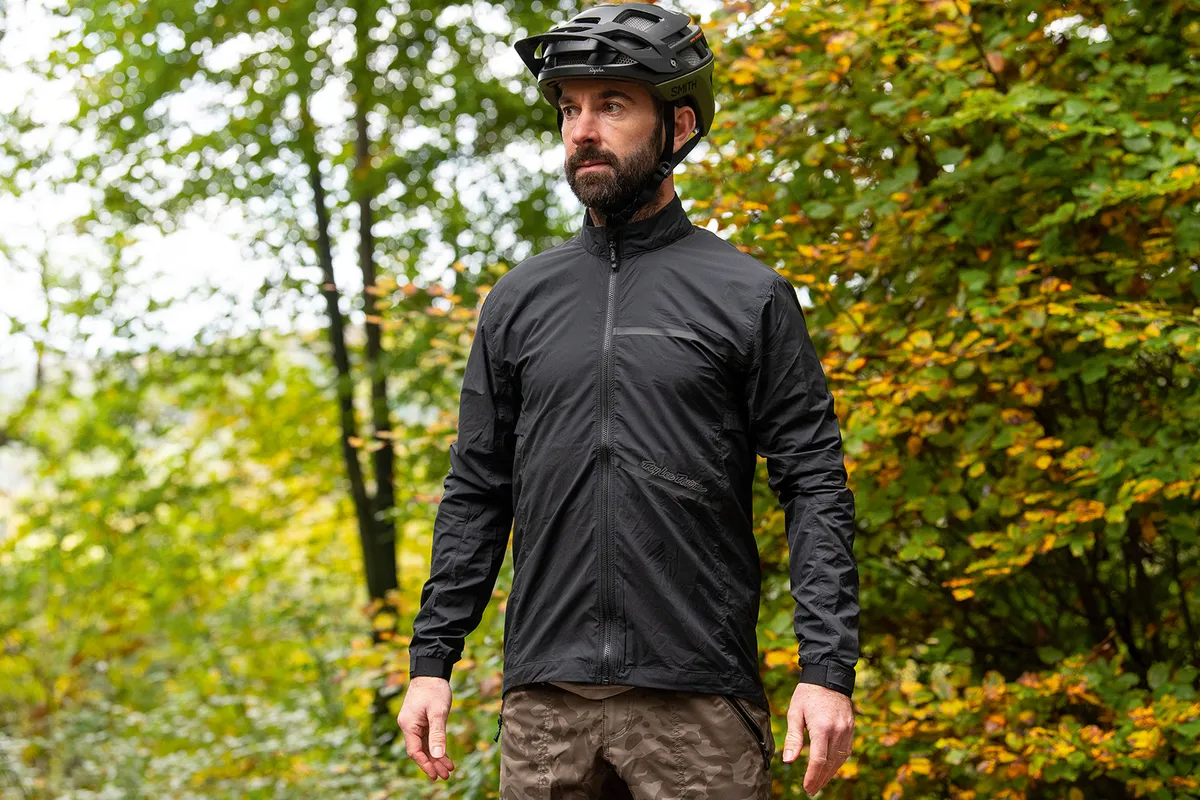
If the weather turns, I’ll stick a windproof jacket (along the lines of the Troy Lee Designs Shuttle jacket) over the top.
They may not be fully waterproof, but when working hard, they’re more breathable and still add a layer of protection to proceedings. My trusty Gore C5 Trail jacket remains as backup for those really grim days.
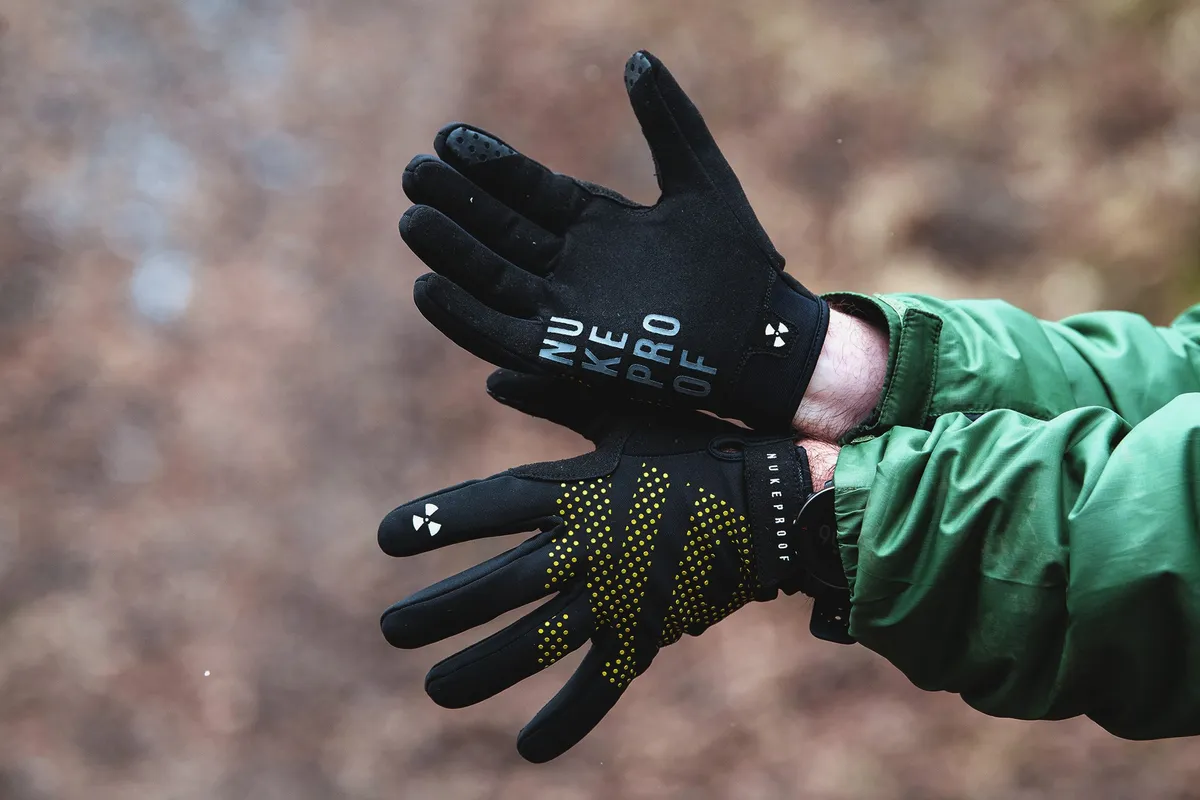
Of course, you need to keep your hands snug but, for me, I much prefer winter gloves with a thinner palm.
For that reason, I’ll switch between the Troy Lee Designs Swelter gloves and the Nukeproof Blacklines I mentioned in my 2021 Gear of the Year round-up. They offer great feel through the palm and keep my hands warm enough on chilly days.
A mudguard and a mug of coffee
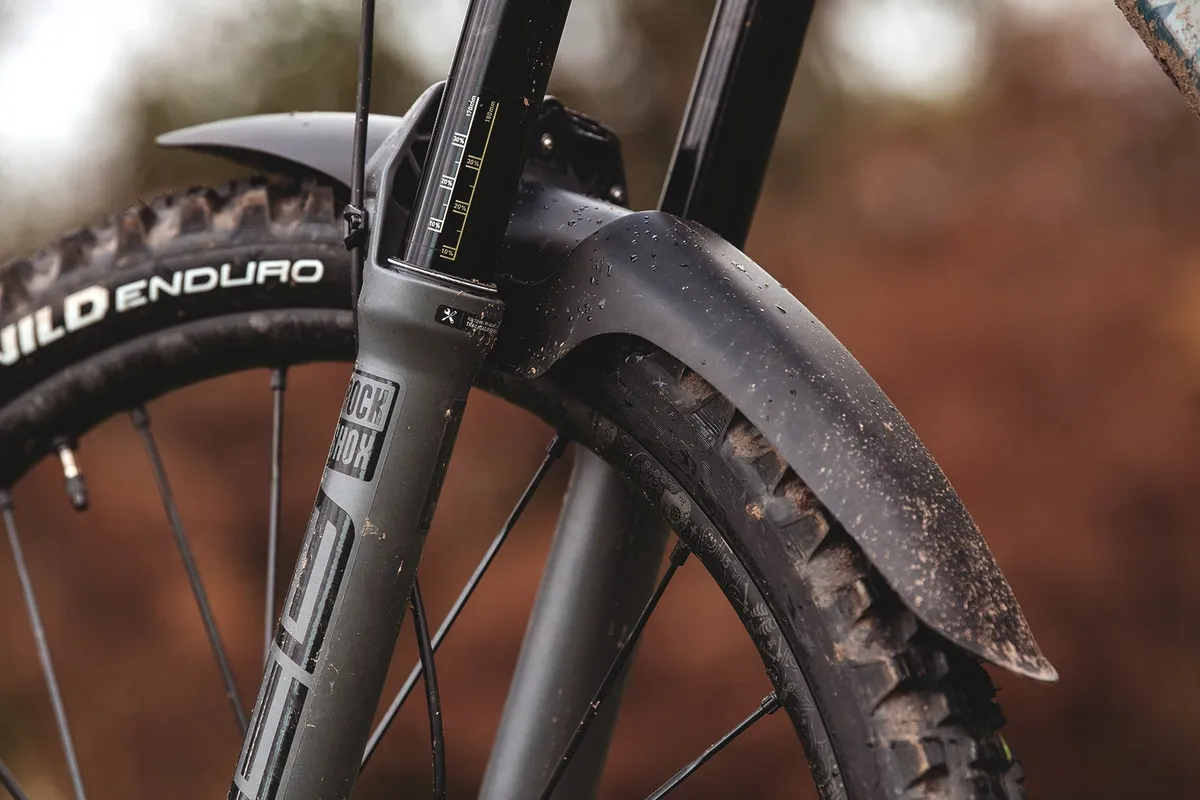
Along with a good pair of Merino wool socks, I’ll not leave the car park without a decent mudguard strapped to my fork.
I’m a big fan of the guards from Mudhugger. They not only help to keep your vision clear and face (a bit) cleaner, they’ll also work with Velcro straps. That means no cutting and wasting cable ties, and I can switch them between bikes really quickly.
Finally, as a dad of two, I rely heavily on coffee on the best of days, but come winter, I need it even more. That’s why I’ll always have a flask of the black stuff waiting for me at the end of the ride.
Luke Marshall | Winter rubber and warm, dry feet
After a long dry summer, the first few really wet rides are a brilliant novelty. Unfortunately, that soon wears off once the temperatures drop, persistent rain sets in and it barely gets light in dense woodlands.
Still, it's challenging to beat the feeling of tyres squirming underneath you and the bike getting sideways, half-controlled, half-not. Plus there's the sense of excitement, relief and adrenaline when you clear a section you thought you were sure to crash on. Mainly, horrible root spreads.
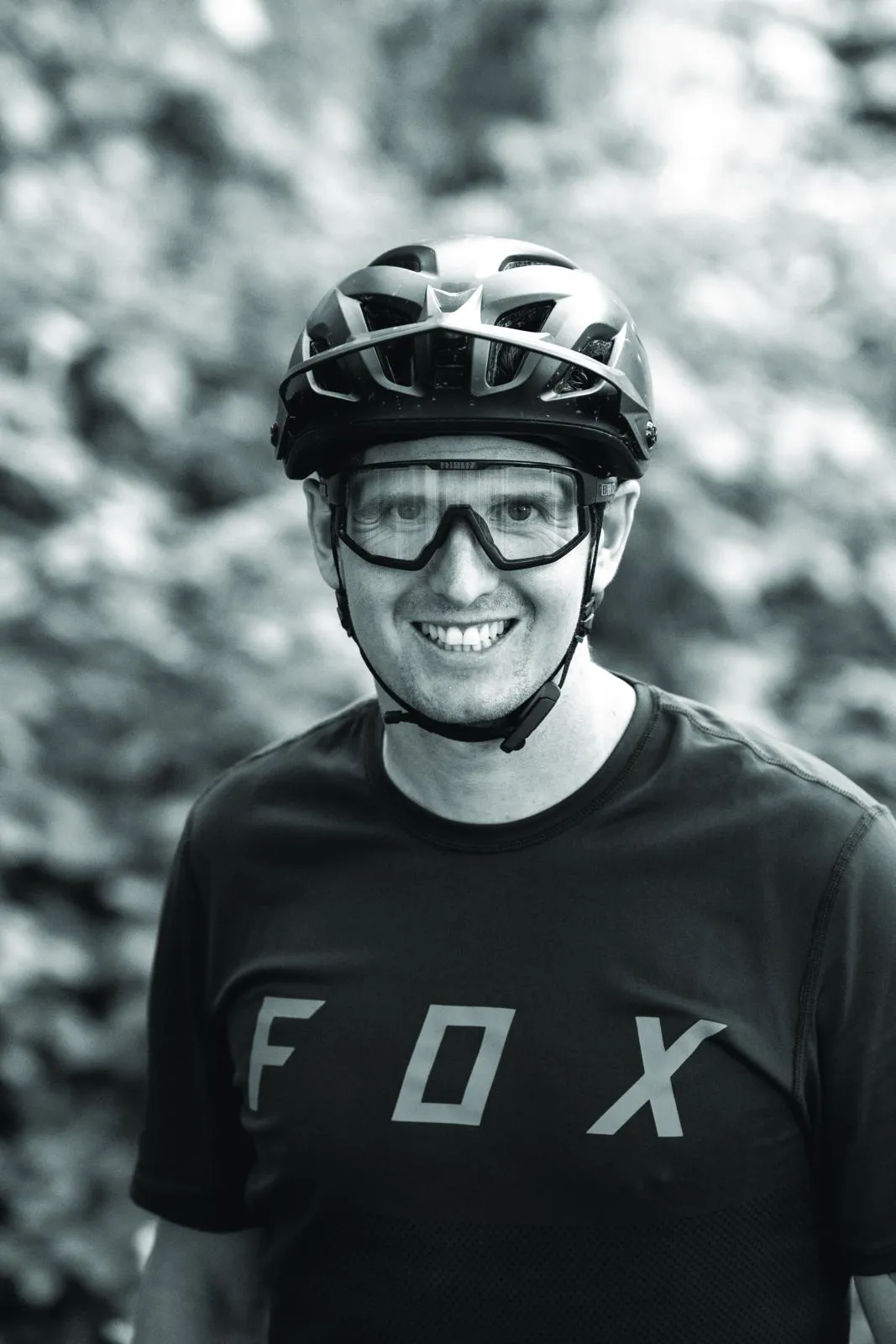
Winter rubber
That brings me to my first winter essential: an excellent front tyre for wet and variable conditions.
My go-to front tyre is a Schwalbe Magic Mary in its UltraSoft compound.
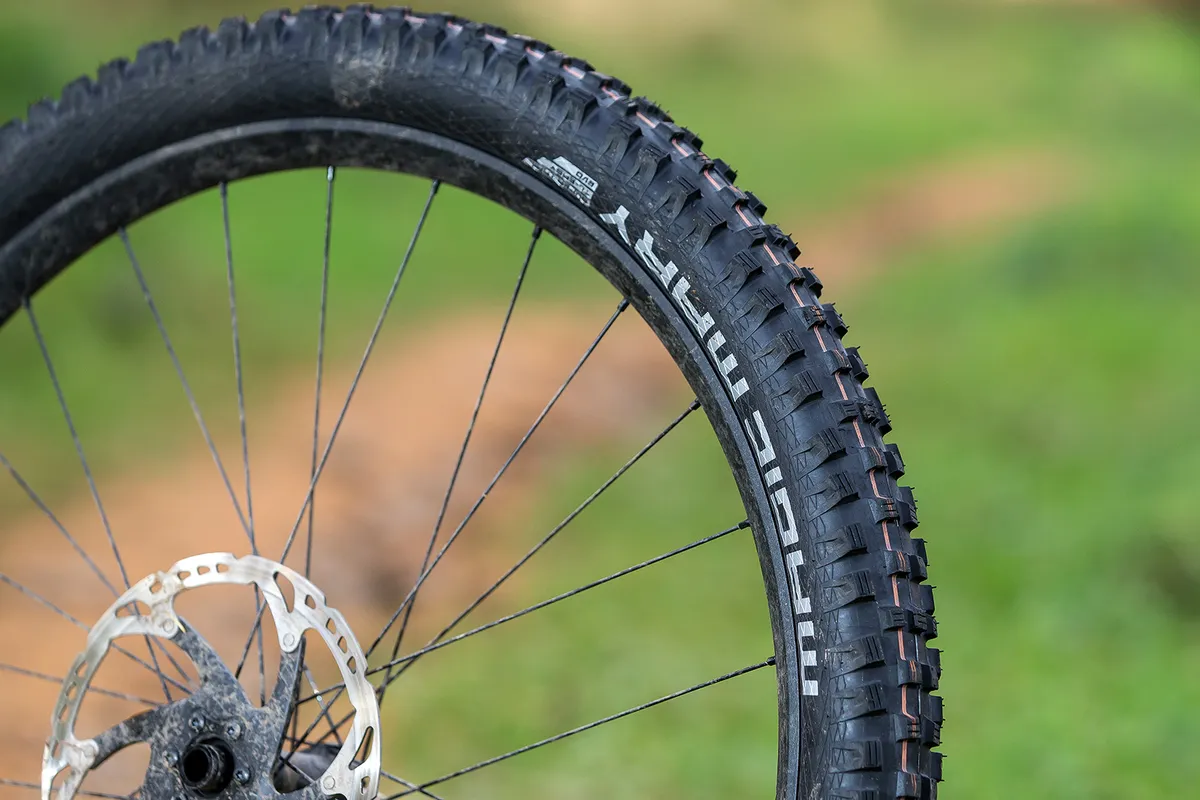
This has long been a favourite for its versatility and performance. It can handle wet, sloppy bike park hardcore and still hold its own in soft loam or thick muck.
If you want to give yourself a shot of confidence during winter rides, I suggest a front tyre that will bite into the soft conditions (you can also read my test of the best winter mountain bike tyres).
Stopping power
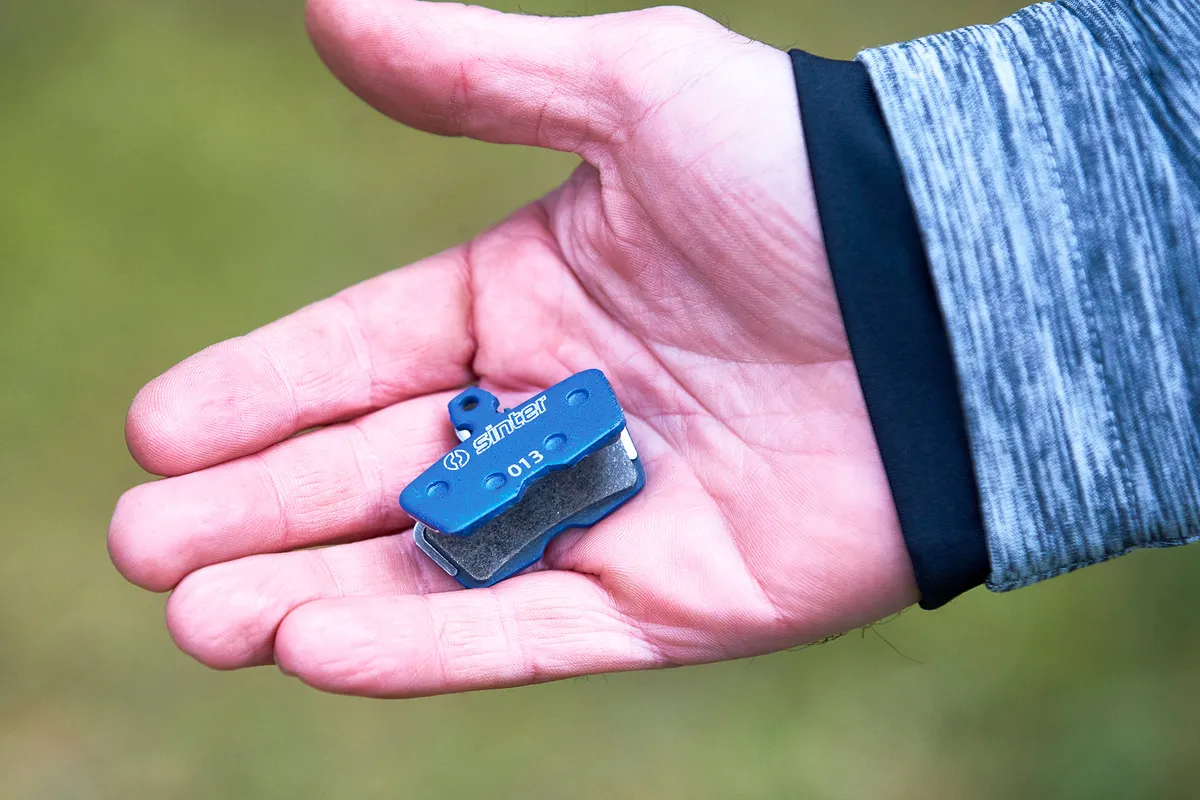
A second point regarding bike setup is to get some sintered brake pads. Few things will kill confidence like poorly working brakes. If it's cold, wet and nasty, sintered pads will be your saviour.
Sure, they may squeal more. You'll also hear them grinding and rubbing as grit and dirt finds its way between the pads and the rotor. But the power, control and consistency they provide in filthy conditions more than make up for it.
Cold feet? Not for me…
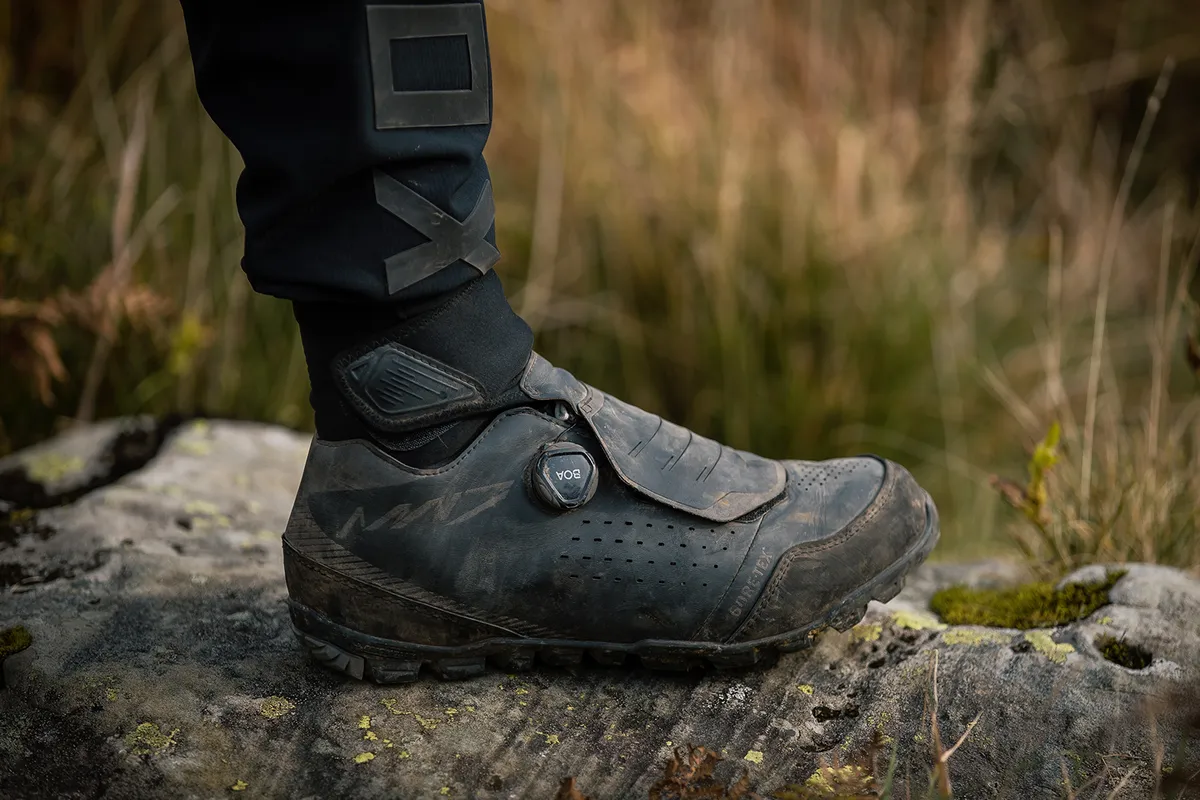
Next on my list is winter riding shoes. After working as a ski instructor for nearly a decade, I've spent far too long not being able to feel my toes in freezing conditions. So, when the mercury plummets, out come the trusty Shimano MW7 shoes. Combined with a pair of wool or neoprene socks, these keep my toes toasty, whether wet or dry.
On top of that, one of the best gifts I received was a boot dryer. I'll tell you, picking one of these up will be a game-changer. No longer am I plastering the walls and radiators in mud. Plus, my shoes are dry and ready to rip in a few short hours rather than days when left to fend for themselves.
My final recommendation is the neck tube. Folded over and pulled over my head, it keeps my ears warm and shelters them from the sting of freezing air whistling past.
Alex Evans | Double bagging and a warrior mentality
Everyone has their own methods and bits of kit they rely on for turning winter riding from an exercise in mitigating your losses to an all-out inspiring affair, and the closer you live to the northern or southern poles of the globe, the more honed your methods are likely to be.
I don’t personally proclaim to live in an exceptionally northern part of the globe (55.5 degrees latitude to be precise). However, I do live in Scotland, which is famously soggy and, in the winter months, can be, to use a rather British term, ‘quite chilly’.
As my southern colleagues exchange cute pillow talk of waterproof shoes and cups of coffee in the van, I’m battening down the hatches and dressing myself in as many layers as I own, and that’s just to get out of bed let alone get out on the bike.
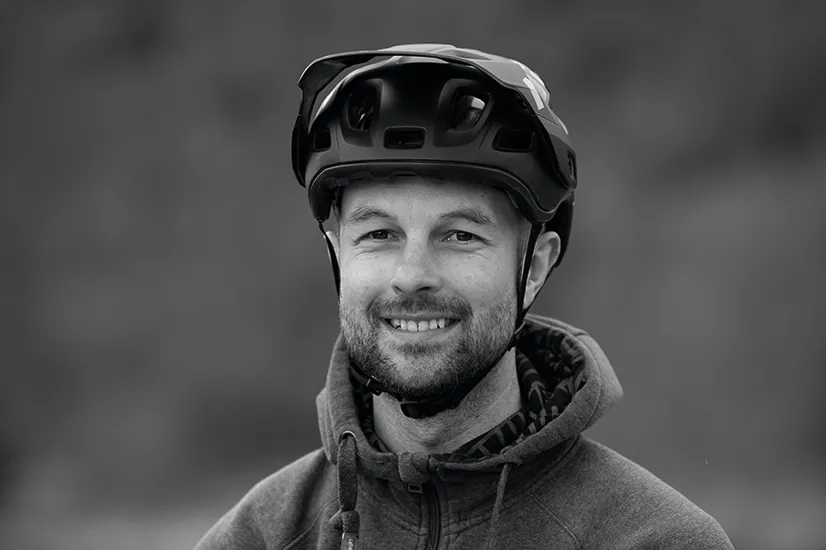
Double-up
Which bits of your body need protecting the most to help prevent a trail-side sense of humour transplant?
For me, that starts with double-bagging your feet with the best waterproof socks you can find, before you slide them into some winter shoes. Only this two-tiered security system will start to keep your feet dry.
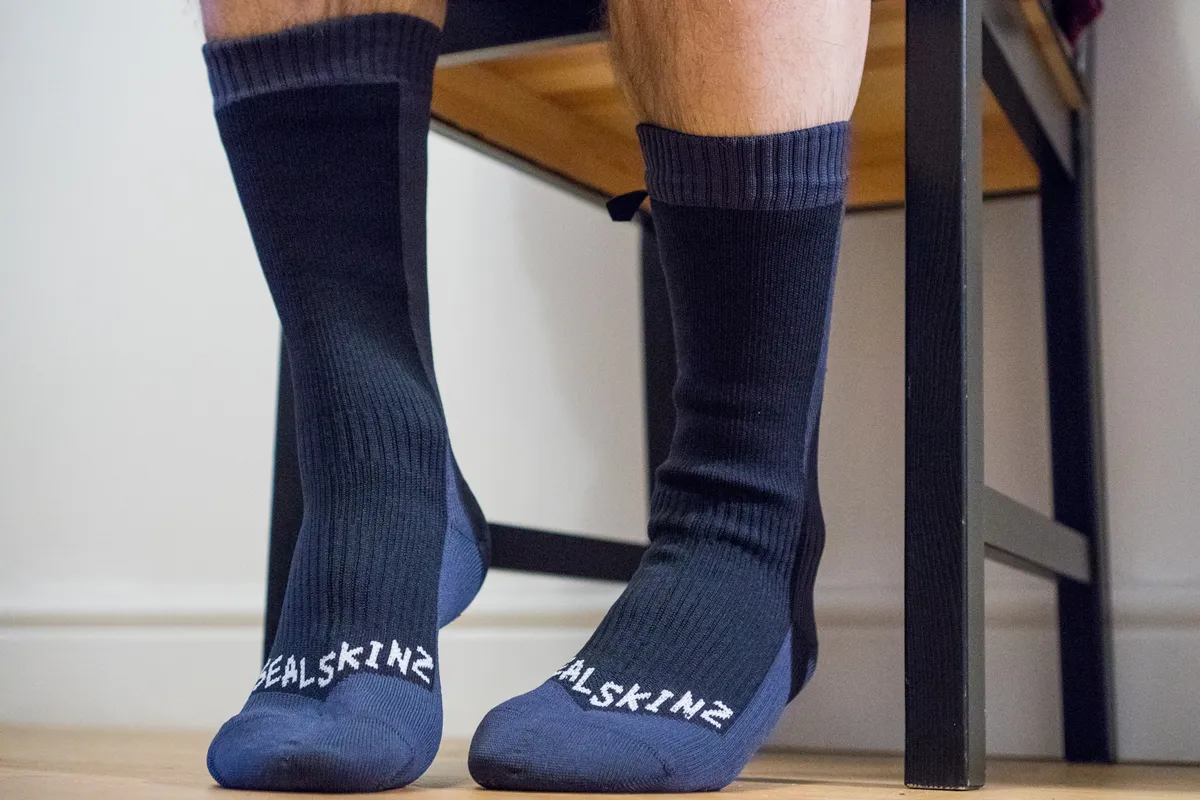
The rule of pairs is true for your hands, too, but not because I recommend wearing two sets of gloves at once. Instead, pack a second pair of gloves into your bag or pocket as a lifeline for failing extremities.
Once your original pair gets either saturated from climb-induced sweat or soaked from the skies, start afresh with your second set and smile with the smug satisfaction that your fingers won’t suffer from frostbite.
Winter warmer

Although it sounds a bit bonkers, filling your bottle or hydration bladder with warm (not boiling) water is another way to stay outside for longer.
I’ll admit, you’re not going to get the same cosy-by-the-fire feeling as necking a freshly poured hot chocolate, but it will resist freezing solid for longer and help you stay out on the trails suitably hydrated.
Warrior mentality
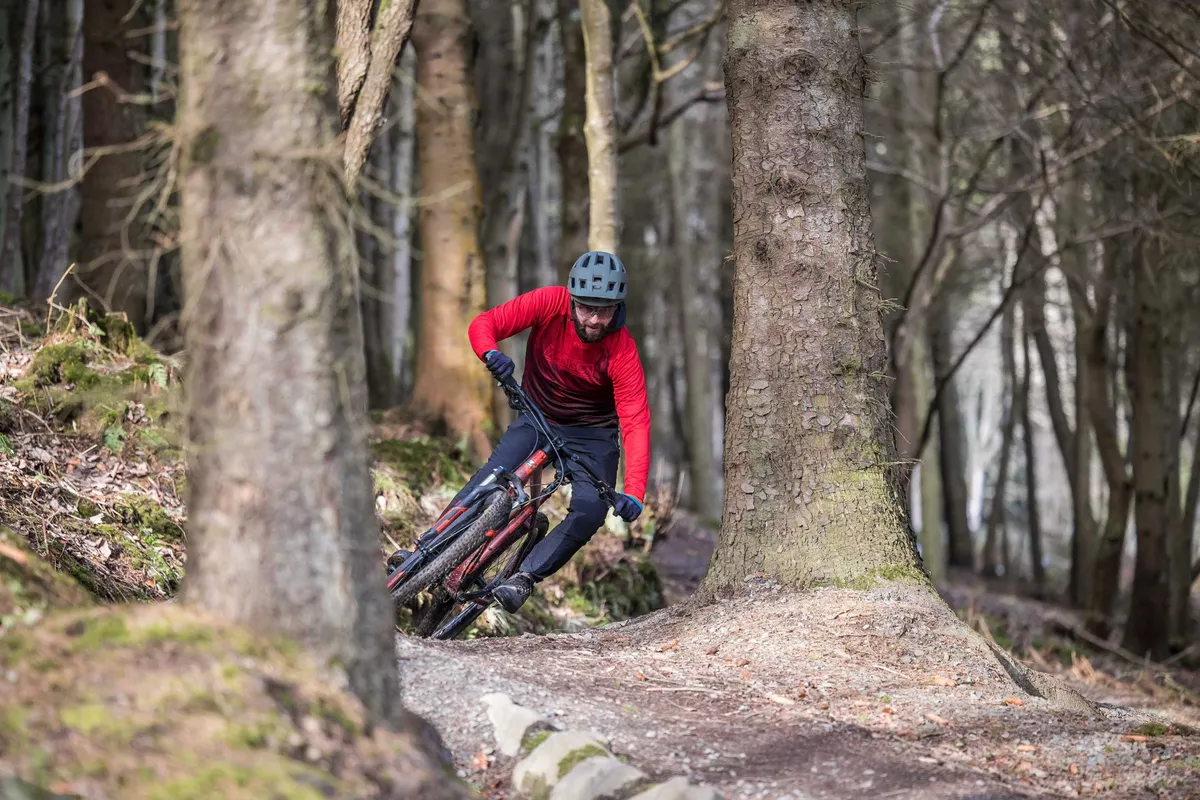
Riding when it’s cold enough to turn the liquid contents of your bottle into a solid requires a special sort of commitment to bike riding that not all people possess.
It’s in the mind where the real commitment to winter riding lies.
No amount of kit will truly beat the elements – even though they will make your time on the trails more comfortable – when things get really foul. It’s the “f**k it” attitude to getting wet, muddy and cold that works its magic, transforming any trepidation about chilly fingers into a total mud bath blast.
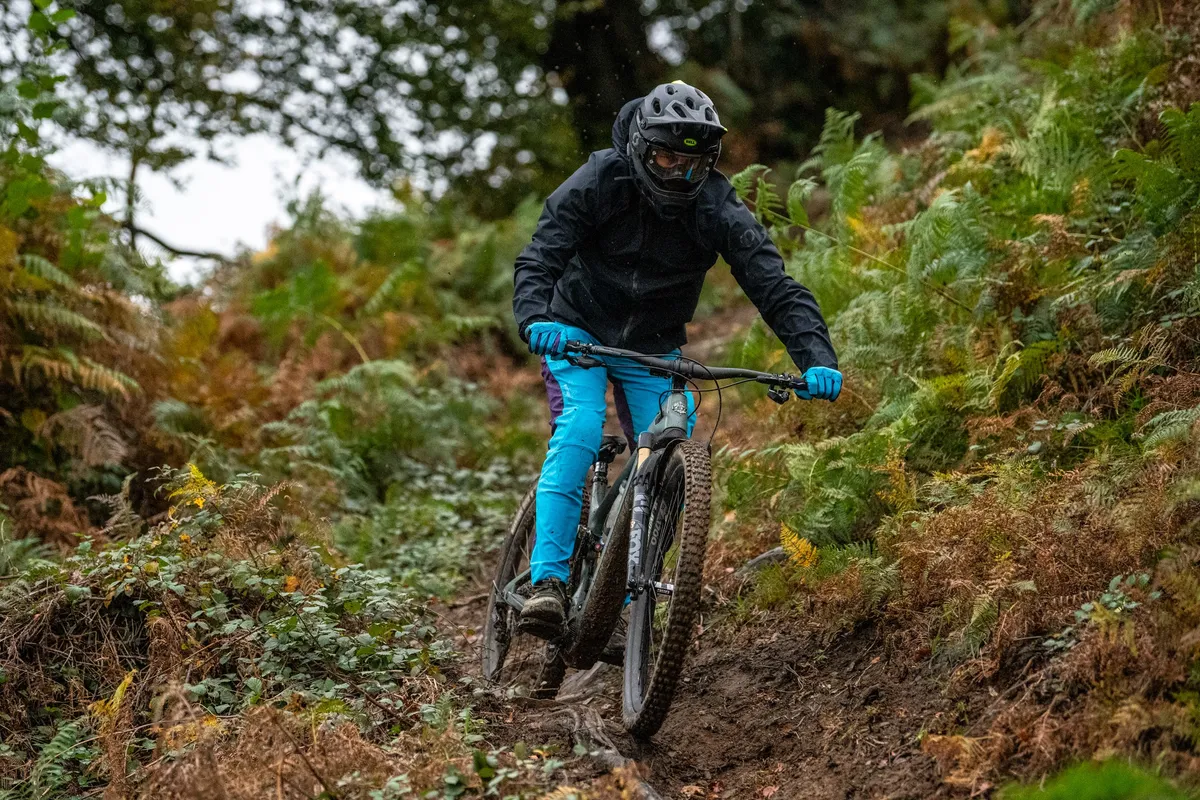
Mind over matter will usually be enough to supply you with your adrenaline-fuelled mountain biking fix, and that extra enthusiasm usually means you’ll blatt around your favourite route quicker than if you’d gone out trying to stay dry and clean.
With a speedier pace, you’ll stay warmer, but, most importantly, that injection of speed brings a hastier return to the comforting, warm bosom of the trail-side cafe that marks the end of a great ride.
Tom Marvin | A winter onesie and portable pressure washer
Let’s not beat around the bush, riding in winter can be a bit of a drag – figuratively and literally. So hacks to make getting out less hassle and more fun are always key to keeping motivated and out on the trails.
As such, over the years, I’ve built up a collection of kit that speeds up the before-and-after of riding, to ensure I spend either more time on the bike, or less time either side of my ride prepping or packing up!
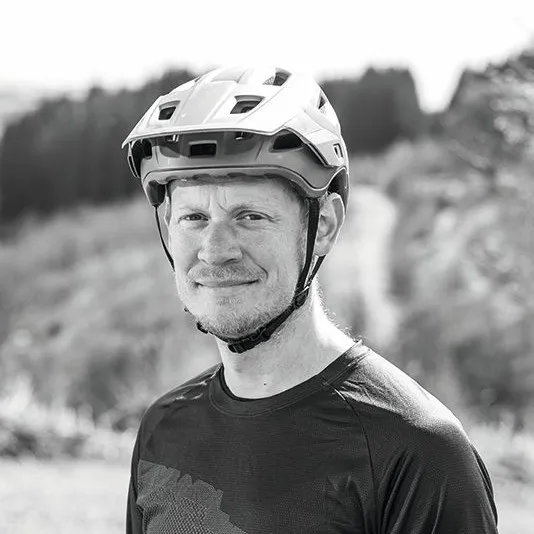
Wind-beating baselayer
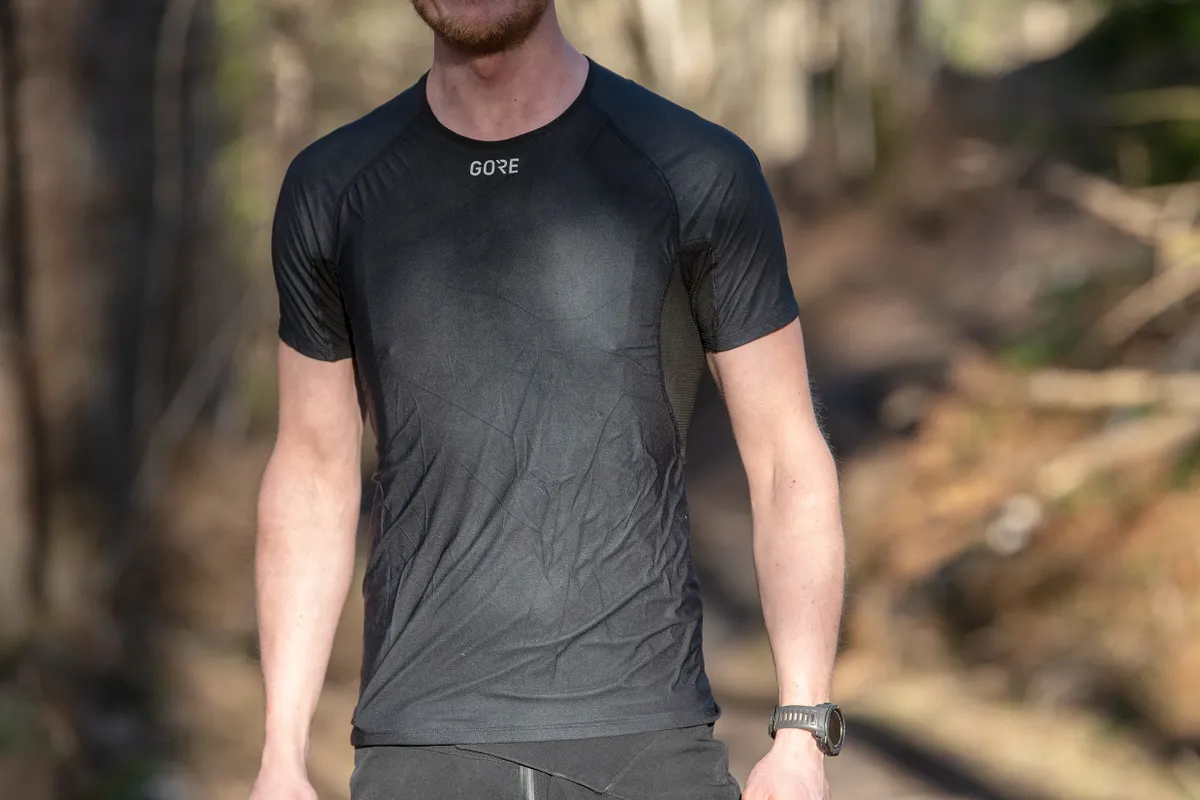
I’d start by echoing Luke’s shoe-dryer tip. There’s nothing worse than cold, damp shoes when you’re heading out on the bike, so post-ride cleaning and then drying is a necessity.
It’s a bit of a luxury, but if I’m riding from the door, I’ll pop my shoes on the dryer 20 minutes before I go out, so I can dip my toes into toasty warmth before I get pedalling.
If it’s cold but dry, there’s nothing better than heading out in a long-sleeve jersey, without the bulk of a softshell jacket or gilet, which inevitably gets quite warm when you’re spinning up a long Welsh hillside.
Here, Gore’s M Windstopper long-sleeve (or short-sleeve) baselayer comes into its own.
The front torso panel, and the arms, integrate Gore’s Windstopper fabric to stop chilly air robbing your body of its heat. At the back, the synthetic fabric does a great job of wicking sweat. The cut is good, and while the Windstopper fabric isn’t as stretchy as a normal baselayer, it stays comfortable all-day long.
They’re so good, I’ve bought a couple of extras for myself.
Riding in a winter onesie-land
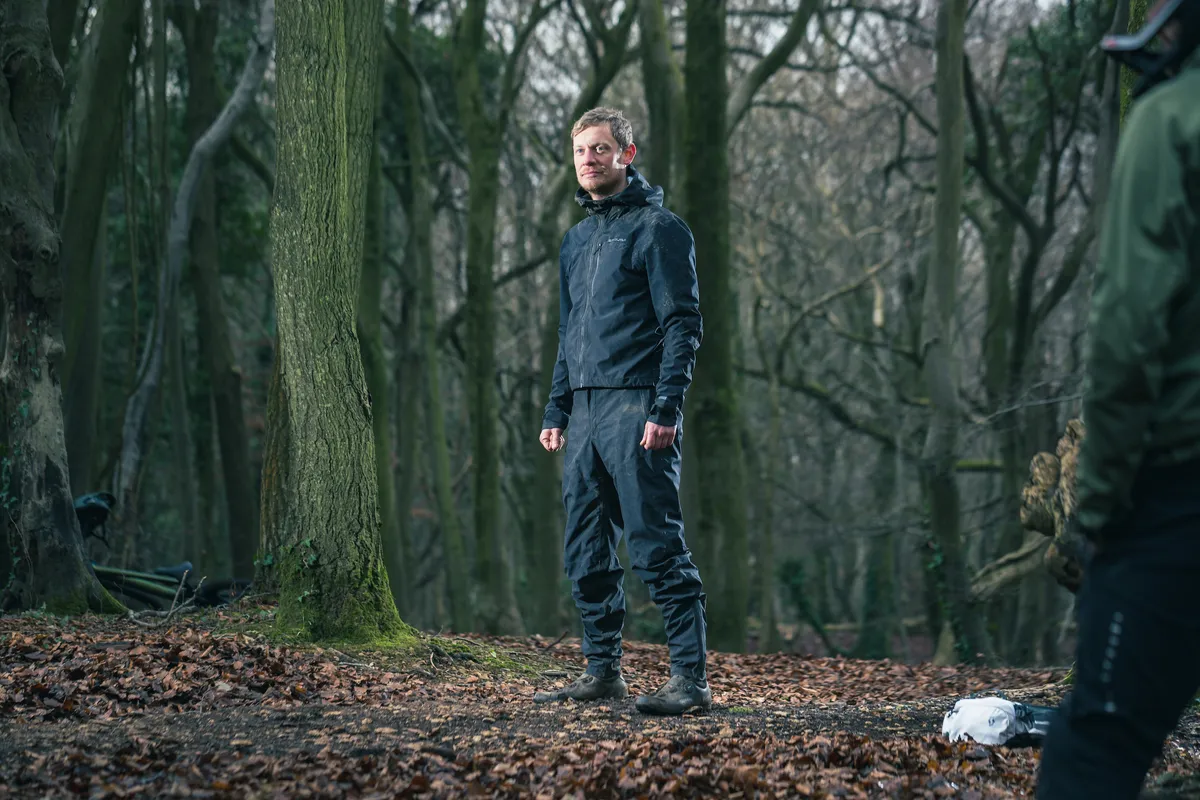
Next up is the onesie. I have a bit of a reputation for loving the onesie, and I stand by it.
A waterproof jacket is joined (quite literally) at the hips to waterproof trousers.
They’re a touch warmer to wear than two separates (though, it’s fairly marginal), but the trousers can’t fall down when they’re plastered in mud, and no spray makes its way up the bottom of your jacket.
You stay dryer, warmer and cleaner – what’s not to love?
I’ve tested a few, with more on their way (come on, clothing manufacturers, get with the programme!), but none has scored full marks so far.
However, the pick of the bunch currently is the Endura SingleTrack One Piece. The cut and reliability of the fabric is better than Endura’s pricier MT500 One Piece in my experience, and it’s a lighter overall package than the dirtlej DirtSuit.
Ask me again in a few months if someone else has come out with a better product, though.
Post-ride clean-up
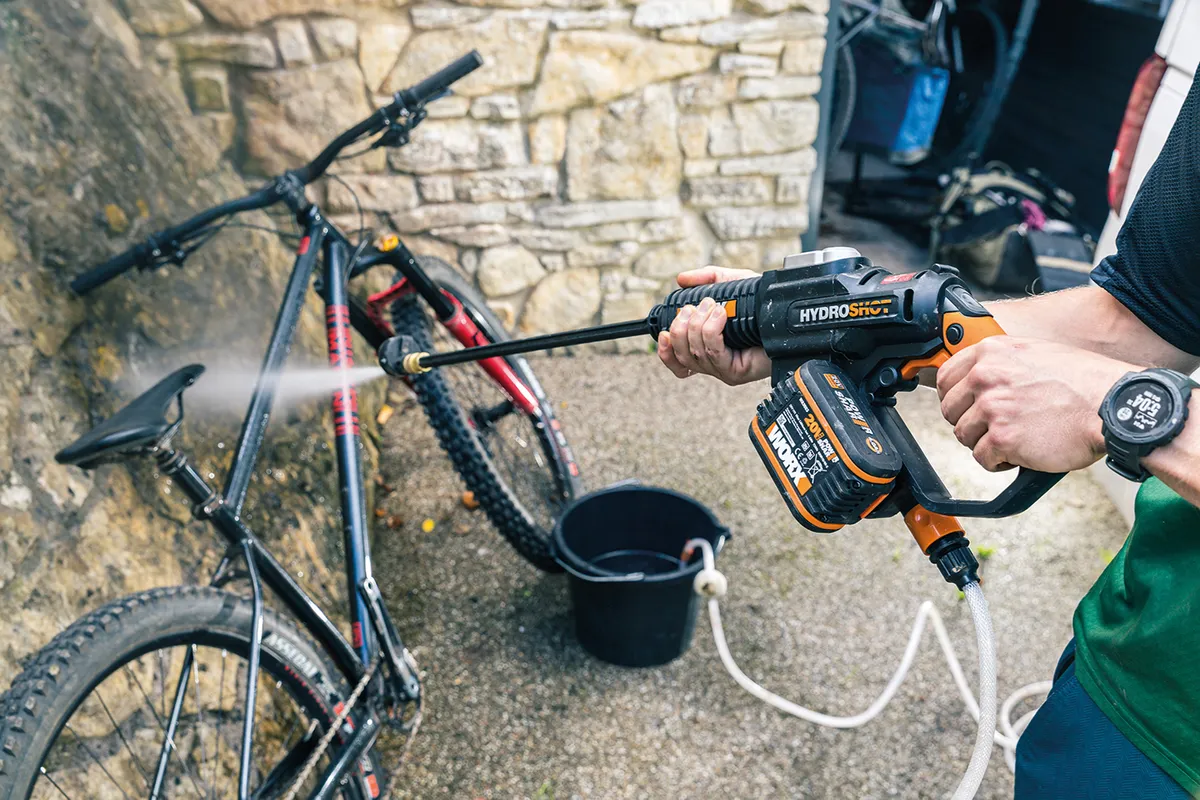
Finally, you’re back from your ride, bike and kit covered in filth. The last thing you want to do is spend ages cleaning everything up.
In the back of my van is a 50-litre container, which I keep filled with water. Sat next to it is a Worx Hydroshot.
This battery-operated pressure washer can source water from (clean) streams, water containers or an outside tap. It makes short work of blasting mud and grit off your bike and kit, and while a bit noisy, it’s fairly compact, too. It’s also a lot better than the majority of other portable pressure washers out there.
Oh, and as with all pressure washers, go easy on your bearings and fork/shock seals, okay?
